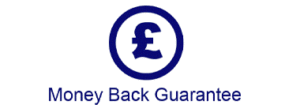What is intellectual property theft and how can you prevent it?
All forms of intellectual property start as nothing more than an idea.
Once that idea generates tangible results, then intellectual property is at risk of theft.
On the face of it, stealing an idea seems like a minor offence. However, theft of intellectual property can have larger consequences for consumers and companies alike.
In this article, we’ll explain what intellectual property theft is, and how to prevent intellectual property theft.
How common is Intellectual Property Theft?
Committing the act of intellectual property theft involves stealing an individual or company’s original creation or idea that can be protected under intellectual property legislation.
What Are the Consequences of Intellectual Property Theft?
Intellectual property theft can have various consequences for companies, entrepreneurs, and even private individuals who may have uploaded art, music, photos, video, or shared written work on a personal platform.
In many countries, intellectual property is legally protected, therefore theft is subject to criminal prosecution and civil lawsuits. As a result, theft of intellectual property can incur attorney fees, fines, court cases, and even time in prison.
Intellectual property theft can also inhibit the ability to operate a business. Both the victim and perpetrator will be left with a tainted brand and diminished reputation, which will affect their revenue, as they’ve lost consumer trust in their products or services.
A business facing an indictment or litigation for theft of intellectual property may also experience loss of licensing rights and revenues. Such outcomes would ward off potential investors or partnerships interested in working with the business.
Theft of intellectual property is increasingly common in the internet age.
As more information is published online and a higher number of people are able to access it, individuals and companies become more susceptible to intellectual property theft.
What Is the Punishment for Intellectual Property Theft in the UK?
Tackling how to prevent intellectual property theft is in large part dependent on the punishment ascribed to the offense in each country. In the UK, factors such as the type of intellectual property, the relevant legislation, and the specific offense committed will determine the penalty for theft of intellectual property.
Generally, intellectual property theft can result in:
- A fine
- The necessity to rebrand an entire business (including company name, social media accounts or handles, on products and within services)
- A requirement to destroy all stock
- Imprisonment or
a combination of all these.
For example, unauthorised use of a trademark under s.92 of the Trademark Act can attract a sentence of six months and/or a £5,000 fine.
Whereas the Copyright, Designs and Patent Act dictates sentences between three and six months, and fines of £5,000 to or an unlimited amount.
What Is the Most Common Type of Intellectual Property Theft?
Intellectual property theft can take many forms, such as piracy or counterfeiting. However, the most common type of intellectual property theft is likely infringement.
Infringement occurs when someone uses someone else’s intellectual property without permission. Infringement can take place with many types of intellectual property, such as copyright, industrial design, trademarks and patents.
And if you’ve used the internet, you’ve likely already witnessed or partaken in infringement.
Case in point, if you’ve seen YouTube or social media videos completely removed or with the sound omitted, this is likely because the creator of the video did not have permission to use the music in the video.
What Is a Real-Life Example of Intellectual Property Theft?
Whenever luxury goods enter the market, they quickly give rise to intellectual property theft with the production of several counterfeits of the same products.
In the late 2010s, a popular counterfeit circulating was the Kylie Lip Kit by Kylie Cosmetics.
While authentic products were priced upwards of £20, fake products were often sold for less than £7.
This situation demonstrates theft of intellectual property, as counterfeiters would replicate the packaging of the lip kits, infringing on their respective trademarks.
Unsuspecting buyers would also purchase them, believing them to be genuine.
Sellers passed off these products as legitimate, relying on the reputation of Kylie Jenner and her company, and the popularity of her products.
However, consumers who bought fake lip kits experienced severe allergic reactions. Hence, knowing how to prevent intellectual property theft is an important issue to solve.
How to Prevent Intellectual Property Theft
For the sake of protecting consumers, preserving brands, and promoting business growth, it’s crucial to address how to prevent intellectual property theft. Registering your intellectual property with your local regulatory body will, under many circumstances, discourage theft. Moreover, as the victim of intellectual property theft, registration will provide protection during legal action.
Companies can also take initiative internally, in the form of employee training and improved cybersecurity.
Employees should be made aware of the company’s intellectual property and possible threats.
At the same time, company protocol such as restricting access and using anti-virus software and private networks should be implemented. As an individual or a small business, employing such measures may be expensive or unnecessary.
However, signing a non-disclosure agreement prior to working with other businesses or independent contractors is another form of protection.
Contact Trademark Eagle
Registering your intellectual property is the best weapon against intellectual property theft.
And the best way to use that weapon is by hiring a company that can assess your intellectual property and ensure that it receives the right protection.
With Trademark Eagle, our team of experts is equipped to help protect your next great idea.
You can contact Trademark Eagle at 01223 208 624 or use our contact form for more information.


